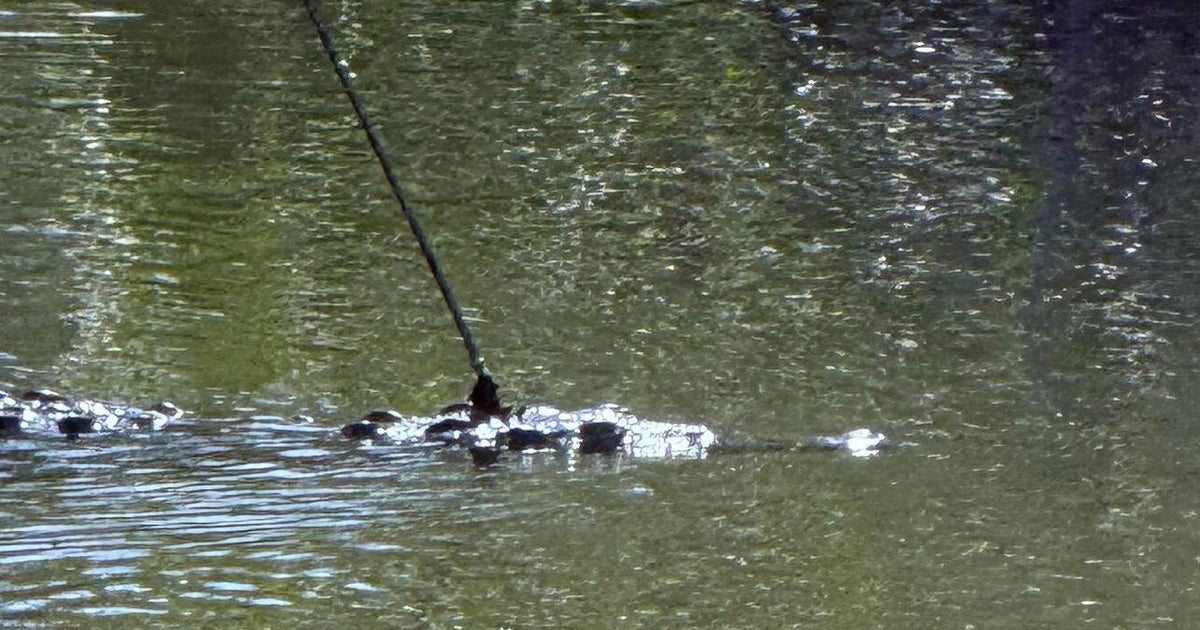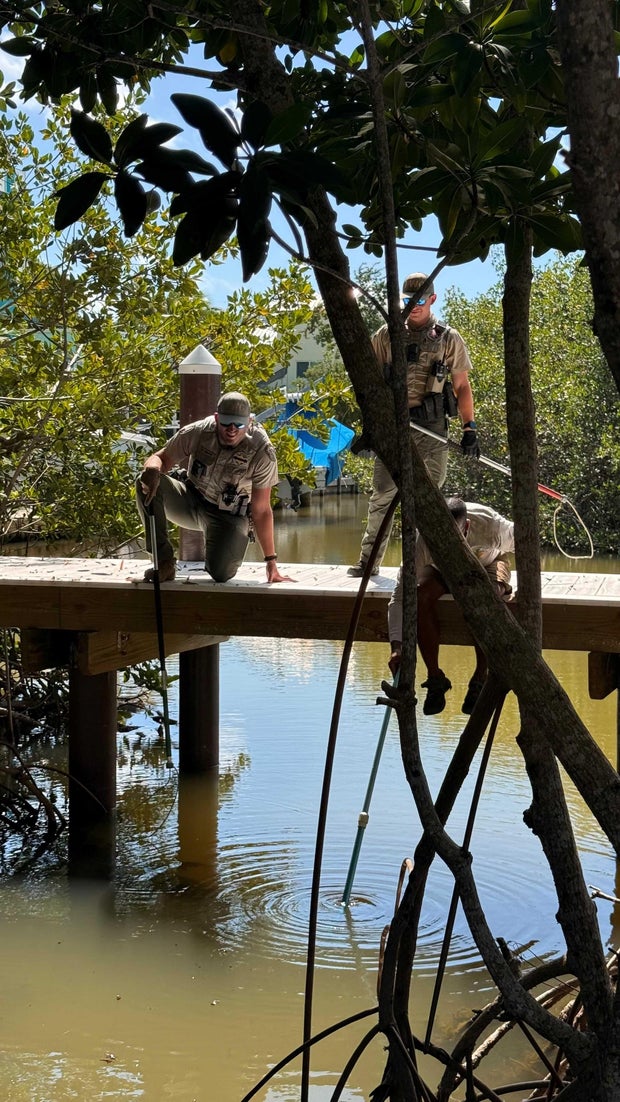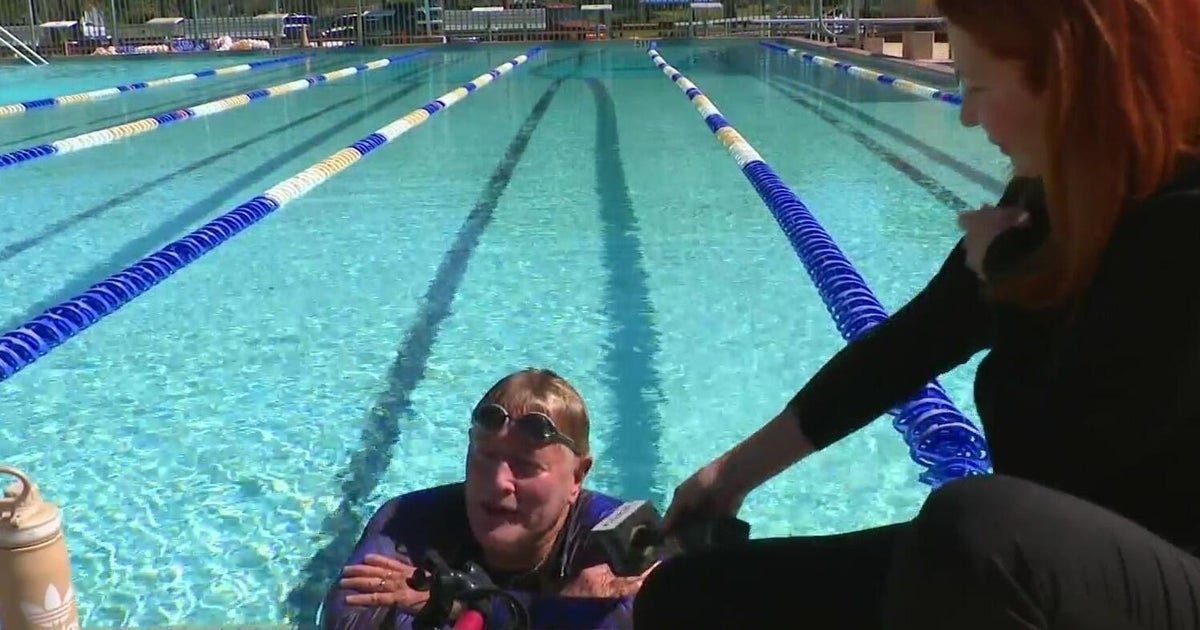Wildlife officials are investigating after an injured American crocodile was recently found swimming in the Florida Keys with a spear lodged in its head.
According to the Florida Fish and Wildlife Conservation Commission (FWC), officers were notified about the wounded reptile around 11:45 a.m. on Saturday, Oct. 18. Responding officers discovered an approximately 8-foot American crocodile near mile marker 101 in Key Largo with a spear from a speargun stuck in the back of its head.
FWC officers and authorized wildlife professionals from Zoo Miami attempted to capture the crocodile for treatment but were unsuccessful. Officials said they are continuing to monitor the situation.
FWC investigators are asking anyone with photos, videos or information about the incident to contact the Wildlife Alert Hotline at 888-404-3922. Reports can be made anonymously, and tips that lead to an arrest or citation may qualify for a reward of up to $1,000, according to the agency.
FWC
The American crocodile is listed as a federally threatened species by the U.S. Fish and Wildlife Service. It is illegal to kill or harass American crocodiles under state and federal law.
American crocodiles in Florida
According to FWC, the American crocodile is native to South Florida. Unlike the larger and more aggressive saltwater or Nile crocodiles, this species can measure about 15 feet in length and is considered shy and reclusive, preferring warmer coastal environments such as canals and mangroves.
Once nearly wiped out by overhunting and habitat loss, the American crocodile population in Florida was listed as endangered in 1975, when only about 300 animals remained. Thanks to conservation efforts and habitat protection, their numbers have since rebounded to more than 2,000, leading federal officials to reclassify the species as threatened in 2007.
As the population recovered, crocodiles have been increasingly appearing in areas where people live. Sightings near docks, pools and residential canals have become more common in South Florida, prompting a rise in complaints and human-wildlife interactions. The FWC said that, in partnership with the U.S. Fish and Wildlife Service, its focus is on managing these conflicts and promoting coexistence with the species.
FWC
How to tell Florida crocodiles and alligators apart
Although the American crocodile and the American alligator share a similar appearance, several key features set them apart.
- Build and snout: Crocodiles have a slimmer, more tapered build, while alligators appear broader and heavier. One of the most noticeable differences is in the snout: the crocodile’s narrows and comes to a point, while the alligator’s remains wide and rounded at the tip.
- Teeth: Another way to distinguish the two is by looking at their teeth. When a crocodile closes its mouth, a prominent fourth tooth on each side of the lower jaw remains visible, FWC noted. In contrast, that same tooth is hidden in an alligator’s closed mouth.
- Color: Crocodiles also tend to have a lighter, grayish coloration compared with the darker, nearly black hue of alligators, which helps them blend into their distinct habitats.
- Habitat: Florida crocodiles inhabit coastal areas and brackish water, including mangroves, canals and estuaries in South Florida. Alligators, on the other hand, are more common in freshwater environments such as lakes, ponds, and marshes throughout the state. This difference in habitat means that crocodiles are rarely found far from saltwater, while alligators thrive inland.




